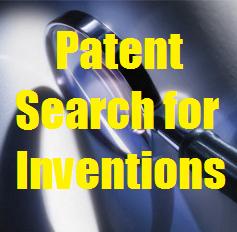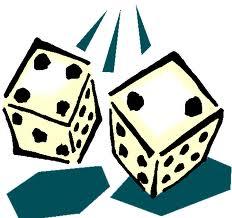Shortcuts for Patent Searches
Before you waste lots of time tinkering on your new invention (or spend thousands on a patent application), you might want to invest a little time researching if someone else has already received a patent on your idea.
Why?
First, you can’t get a patent if someone else already has one. And second, you can’t monetize it (why bother inventing something you can’t patent and get paid for?)
The easiest way to discover if there is a patent on your idea is to hire a patent attorney. This will run you at least $1,500 for a reputable patent attorney (much less and it’s probably a scam). However, you don’t have to rush to have a patent attorney do the search right away if you’re more of a "do-it-yourselfer".
Here are a few tips that will save you time and money if you elect to research prior patents on your own.
Types of Patent Searches
The first thing you need to know is that there are lots of different types of patent searches. But you only need to be concerned with the "Novelty Search". This is a type of patent search that determines if anyone has previously invented anything similar or identical to your idea.
Don’t worry about "validity searches"…"infringement searches"…or…"state of the art" searches.
Where to Conduct Free Patent Searches
Your best place to start a patent search is, well, at the Patent Office. The United States Patent & Trademark Office maintains an online database. Click below for a link to the site:
United States Patent and Trademark Office Search Engine
The online searches on the United States Patent Office database are great because, well, they’re free. But there is one big downside. And that is volume. Each patent search is different, and if you are not experienced at searching you could easily waste a few hours to a few days digging through thousands of search results.
That brings us to the second method of searching if your idea can get a patent…paid search engines.
Paid Patent Searches Online
Paid patent searches give you one big advantage over free patent searches…they allow you to quickly scan all of a patent’s relevant information in one data-intensive document. Generally, theses sites draw from a more complete collection of patent resources.
With these you generally get:
- Patent title and number
- Inventor name
- Patent abstract
- Legal status actions
- Business profile of assignee
- Links to patents by same assignee
- Other references including links to prior art
- Drawing descriptions
The paid patent search options also help you determine if your idea is patentable by:
- Speeding up the patent search process by giving you thumb-nailed versions of each drawing (quicker than looking at the big pictures)
- Showing you more detailed patent drawings with more extensive zoom and search features
- Providing bulk downloading of patents for your personal files
- Giving you customized patent reports (complete with analysis and visualization tools) that provies insight into patent information that might go unobserved in a manual review of documents.
Obviously software like this is not cheap. But it saves massive amounts of time and money when you do lots of patent searches. One of the many paid databases and patent search software systems that John Rizvi, P.A. uses at our Coral Springs, Florida office is at www.delphion.com.
Financial Risk of the "Do It Yourself" Patent Search
 Now here’s the big downside to both of these approaches. Doing your own patent search is a roll of the dice. If you fail to do a thorough job on your patent search – and then your patent application is denied – you have just wasted thousands of dollars!
Now here’s the big downside to both of these approaches. Doing your own patent search is a roll of the dice. If you fail to do a thorough job on your patent search – and then your patent application is denied – you have just wasted thousands of dollars!
If you do your own search, however, and find that your invention is already out there and patented by someone else, you will have saved some attorney fees which can be put to better use on your next idea…perhaps even for a patent search by a patent law firm where you’ve tried the search yourself but not come with any results.
Think of a comprehensive search by a patent lawyer as cheap insurance before you invest big bucks in filing for a patent application.